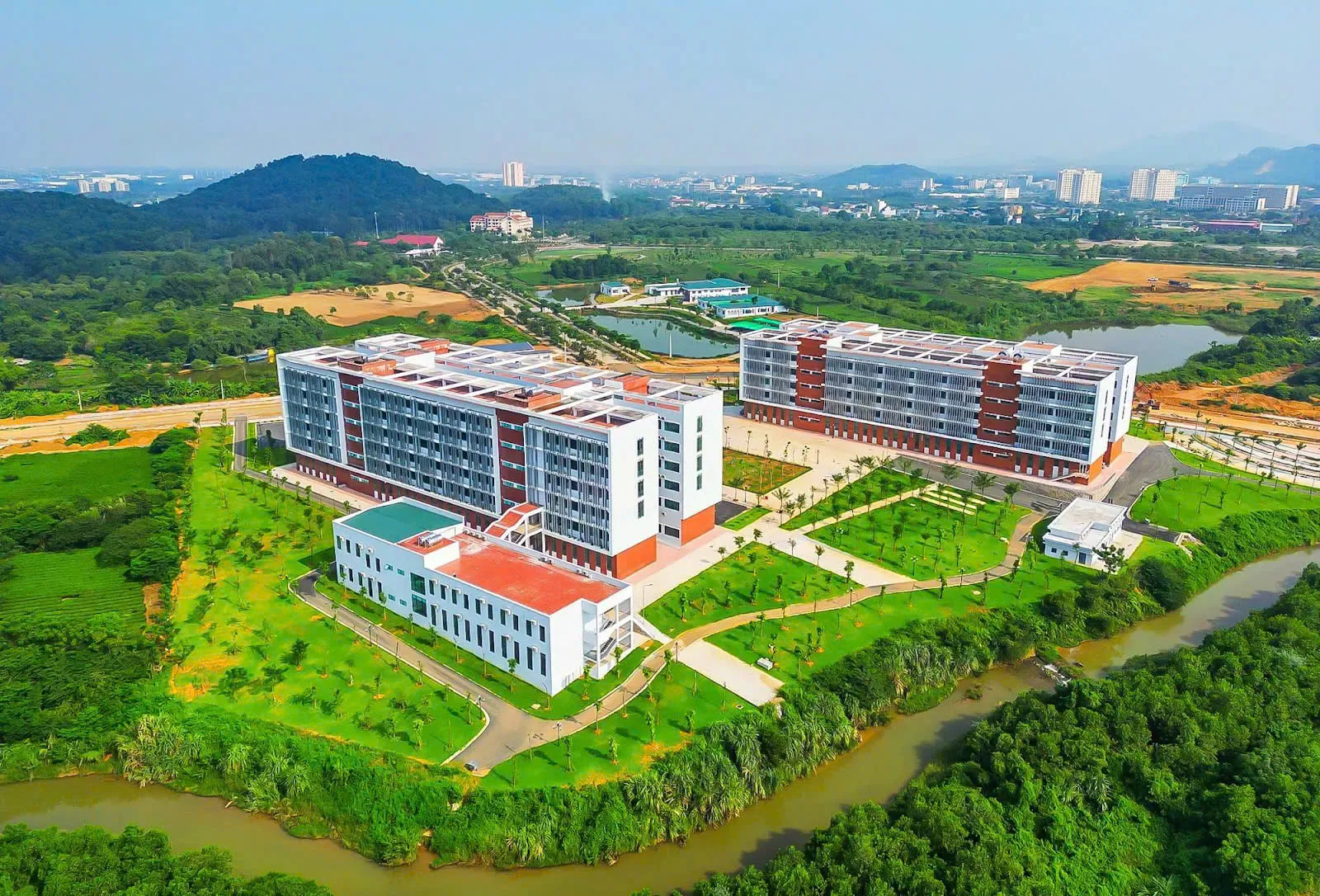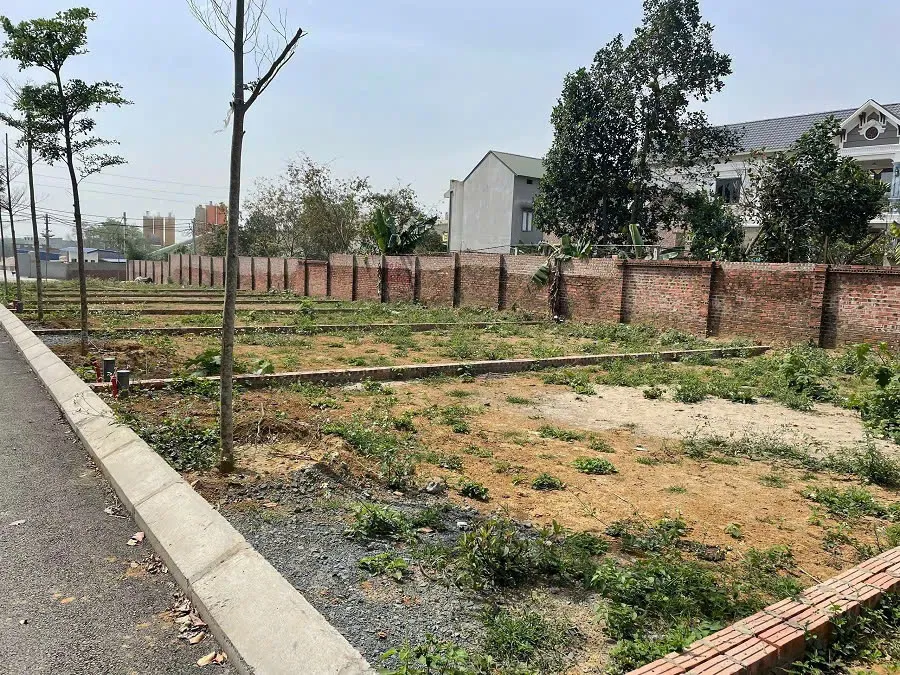Territorial reorganization to boost Hanoi and Capital Region’s real estate market
Experts have said that merging provinces and cities will give real estate markets around Hanoi new growth momentum.
THE HANOI TIMES — The merger of provinces and cities will give the real estate market in Hanoi and the Capital Region a major boost, local experts have said.

An residential area in Thach That District in western Hanoi. Photo: Thuy Ha/The Hanoi Times
At a meeting on May 15 on urban real estate development in the Capital Region, Nguyen Van Khoi, President of the Vietnam Real Estate Association (VNREA), said reducing the number of provincial-level units from 63 to 34 is a strategic move that would expand development space, create new growth corridors, and provide fresh momentum for regional economies.
"This consolidation will open up tremendous potential for urban development and accelerate urbanization, bringing about a major transformation to the real estate market in the Capital Region," he said.
The Capital Region comprises Hanoi and nine neighboring provinces - Bac Ninh, Vinh Phuc, Phu Tho, Hoa Binh, Hung Yen, Hai Duong, Ha Nam, Thai Nguyen, and Bac Giang - and makes up about 7.4% of Vietnam’s land area. The region is home to 21.1% of the country’s population and contributes a quarter of the nation's GDP.
Khoi mentioned the 2008 merger of Ha Tay Province and Hanoi, saying that the move gave Hanoi access to vast new land resources, enabling new developments and new socio-economic achievements.
In 2024, Hanoi's budget revenues reached nearly VND512 trillion (US$19.7 billion), more than eight times higher than in 2007, the year before the merger. The average income per capita climbed to nearly $6,500, a fivefold increase.
"The merger of the neighboring provinces of Hanoi could create a new 'super subnational unit' with abundant resources and space for developing large-scale infrastructure and urban projects. This would boost the entire region's growth in the long run," Khoi added.
The Capital Region is becoming a key driver of economic, urban, and high-tech development for not only northern Vietnam but the entire country. Urban satellite areas around Hanoi, including Bac Ninh, Vinh Phuc, Hung Yen, Ha Nam, and Bac Giang, are emerging as the most dynamic real estate investment destinations.
“These provinces can provide the large land area needed to build modern, well-equipped urban zones, which central Hanoi cannot do due to limited land availability,” he said.
In addition, improved transportation infrastructure has significantly reduced travel time between Hanoi and these provinces. Industrial and logistics real estate in the nine neighboring provinces of Hanoi also holds strong growth potential, and their industrial parks are magnets for foreign direct investment (FDI).
Nguyen Van Dinh, Vice President of VNREA and Chairman of the Vietnam Association of Realtors, expressed optimism about the future of real estate in the region.
"Hanoi and the nine surrounding provinces will account for over 40% of the national supply of newly launched residential properties in 2024 and the beginning of 2025," he said.
The region has more than 300 housing projects under development, representing over 30% of the national supply. In 2024 alone, the area accounted for approximately 60% of the new housing supply and 68% of the total real estate transactions nationwide.

Parcels of land awaiting development in Phu Cat Commune, Quoc Oai District. Photo: Le Tam/The Hanoi Times
Hanoi continues to solidify its position as a special metropolis, expanding its urban infrastructure. From 2024 to 2026, more than 30,000 new housing units are expected to be listed in the city, most of which are located in modern, "all-in-one" mega urban zones.
However, Dinh warned that redrawing administrative boundaries comes with challenges. "Restructuring local governments in merged areas requires comprehensive planning and coordination to prevent overlapping functions and inefficiencies."
The government is developing policies to make administrative operations more effective after the mergers and is preparing measures to prevent land speculation.
According to Tran Dinh Thien, a member of the Prime Minister’s Economic Advisory Council, the Capital Region is being reshaped as a national strategic growth zone with the potential to stimulate development following the merger.
"A new boom cycle is beginning for suburban real estate in the outlying areas of Hanoi. Rather than passively absorbing population growth, it is actively drawing large-scale, varied, and sustainable investment flows," he stated.
Thien said that the seven ring roads surrounding Hanoi will help shape new development hubs in the Capital Region and lay the foundation for a real estate boom in the near future. "There will be challenges as well as opportunities. It’s essential to have the right policies to help the Capital Region harness its development potential.”












